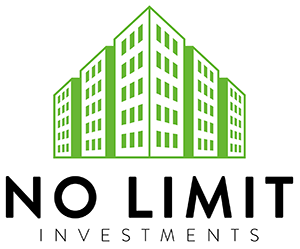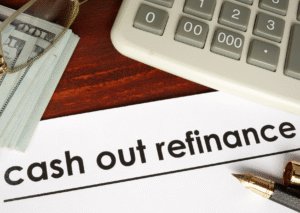What Is a DSCR Loan and Why Does It Matter for Investors?
A Debt Service Coverage Ratio (DSCR) loan is a type of real estate financing that qualifies borrowers based on the cash flow of the property rather than the borrower’s personal income. This means that, instead of reviewing pay stubs, tax returns, or W-2 forms, lenders evaluate whether the property itself generates enough income to cover the debt payments. This approach is especially valuable for real estate investors who may have variable income streams or multiple properties in their portfolios.
The DSCR is calculated as:
DSCR = Net Operating Income (NOI) ÷ Total Debt Service
For example, if a rental property earns $60,000 annually in NOI and its annual loan payments total $48,000, the DSCR is 1.25. This indicates the property generates 25% more income than is needed to cover debt obligations—an attractive metric for lenders.
How Do Lenders Determine DSCR Loan Requirements?
Lenders typically set minimum DSCR requirements to mitigate risk. A DSCR of 1.0 means the property earns just enough to cover debt, while a DSCR greater than 1.0 reflects positive cash flow. Most lenders prefer 1.20 to 1.25 as a safe threshold, though some may allow lower ratios for certain deals.
Common lender requirements include:
- Minimum DSCR ratio (usually 1.20+ for approval)
- Property appraisal to confirm market value
- Stabilized rental income with leases or short-term rental history
- Down payment (often 20–25% of purchase price)
- Reserve funds for several months of mortgage payments
- Good property location with strong rental demand
Why Is Property Cash Flow the Key Qualification Factor?
Unlike traditional loans, DSCR loans shift the focus from the borrower’s personal finances to the property’s income potential. This allows:
- Investors with limited personal income documentation (e.g., self-employed individuals) to qualify.
- Portfolio diversification without personal debt-to-income (DTI) restrictions.
- Faster approval because underwriting is based on property performance rather than extensive personal records.
This makes DSCR loans a powerful tool for building rental property portfolios without hitting conventional financing roadblocks.
What Documentation Do You Need for a DSCR Loan?
Even though DSCR loans don’t require personal income verification, investors must still provide documentation to prove the property’s income stability. These may include:
- Rent rolls or lease agreements
- Short-term rental income statements (Airbnb, VRBO)
- Property tax bills and insurance premiums
- Operating expense statements
- Property appraisal reports
This documentation allows lenders to accurately calculate Net Operating Income and assess the property’s sustainability.
How Can You Improve Your DSCR Before Applying?
If your current property’s DSCR falls short of lender requirements, there are several strategies to increase your chances of approval:
- Increase rental income by adjusting rents to market rates.
- Reduce operating expenses (e.g., negotiate insurance rates, reduce utilities).
- Make value-adding improvements to justify higher rents.
- Refinance existing debt to lower interest rates and payments.
- Purchase in high-demand markets where rental yields are strong.
Improving the DSCR before applying can make the loan terms more favorable and boost approval odds.
What Loan Products Can Complement DSCR Financing?
When working with a full-service investment lender like No Limit Investments, DSCR loans are often part of a broader strategy. Other financing solutions that may complement or support your investment goals include:
- Fix & Flip Loans – Short-term financing to purchase, renovate, and sell properties.
- Buy & Hold Mortgages – Long-term loans for income-generating rental properties.
- BRRRR Financing – Buy, Rehab, Rent, Refinance, Repeat strategy funding.
- Cash-Out Refinance – Access equity in existing properties for new investments.
- Rate and Term Refinance – Adjust interest rates and loan terms for better cash flow.
- New Construction Loans – Financing for building new investment properties.
- Short-Term Rental Loans – Tailored for properties operating as vacation or seasonal rentals.
These products, when combined with DSCR financing, can help investors scale portfolios strategically.
What Are the Advantages of DSCR Loans Compared to Traditional Loans?
DSCR loans offer several unique advantages over conventional mortgages:
- No personal income verification – Qualification based on property income.
- Scalable portfolio growth – Avoids personal DTI restrictions.
- Flexible terms – Designed for investment properties, not primary residences.
- Faster closing times – Streamlined underwriting process.
- Diverse property eligibility – Works for single-family, multifamily, and short-term rentals.
These features make DSCR loans ideal for investors aiming to grow and diversify without being constrained by conventional lending rules.
How Do You Choose the Right Lender for DSCR Loans?
Not all lenders offer DSCR loans, and even among those that do, terms can vary significantly. When choosing a lender, consider:
- Experience with investment properties
- Transparency on fees and terms
- Flexibility on DSCR thresholds
- Range of loan products to support long-term strategy
- Track record with repeat investor clients
No Limit Investments specializes in investor-friendly financing, including DSCR loans, and offers tailored solutions to match each investment plan.
How Can You Start the DSCR Loan Process Today?

If you’re ready to leverage property cash flow to secure funding, and want a financing partner who understands the needs of serious real estate investors, visit No Limit Investments today. From DSCR loans to fix & flip funding and BRRRR strategy financing, their expert team is ready to help you build and scale your portfolio with confidence. Don’t let traditional lending hold you back, unlock your investment potential now. Book an appointment today!
Final Thoughts
Understanding DSCR loan requirements is essential for real estate investors aiming to qualify based on property cash flow. By knowing the minimum ratios, preparing documentation, and exploring complementary financing options, investors can position themselves for portfolio growth without relying on personal income verification. With the right strategy and a trusted partner like No Limit Investments, scaling your real estate empire becomes not just possible, but achievable.
Works Cited
- Fannie Mae. “Debt Service Coverage Ratio (DSCR) Loan Overview.” Fannie Mae, 2024, https://www.fanniemae.com.
- U.S. Department of Housing and Urban Development. “Rental Housing Finance.” HUD, 2023, https://www.hud.gov.
- Investopedia. “Debt-Service Coverage Ratio (DSCR): Definition and Formula.” Investopedia, 2024, https://www.investopedia.com.
Frequently Asked Questions:
- What is a DSCR loan?
A DSCR loan is a real estate financing option that qualifies borrowers based on the property’s cash flow rather than personal income, making it ideal for investors with variable income streams. - How do lenders calculate the DSCR?
Lenders calculate DSCR by dividing a property’s Net Operating Income (NOI) by its total debt service. Most prefer a DSCR of at least 1.20 to 1.25 for approval. - What documentation is needed to apply for a DSCR loan?
Applicants typically need rent rolls, lease agreements, income statements for short-term rentals, property tax bills, insurance costs, and an appraisal report. - How can an investor improve their DSCR before applying?
Strategies include increasing rental income, reducing operating expenses, making value-adding improvements, refinancing existing debt, or purchasing in high-demand rental markets. - What other loan products can complement DSCR financing?
Complementary products include Fix & Flip Loans, Buy & Hold Mortgages, BRRRR Financing, Cash-Out Refinance, Rate and Term Refinance, New Construction Loans, and Short-Term Rental Loans.







